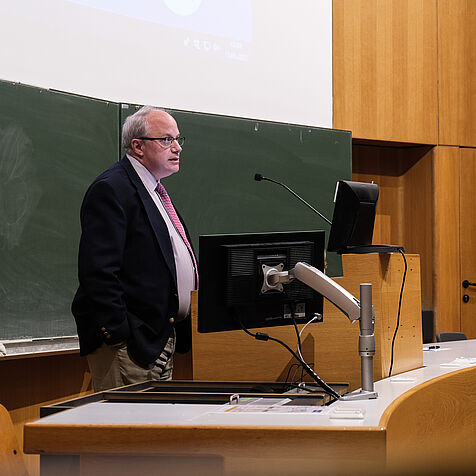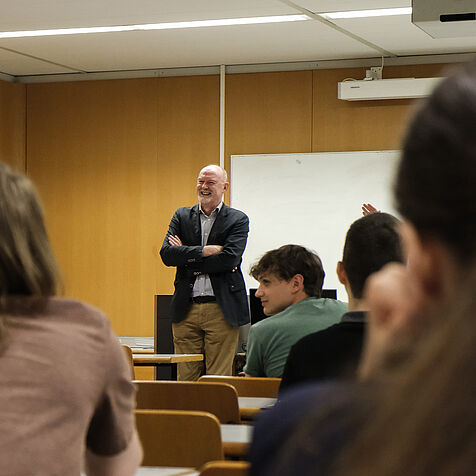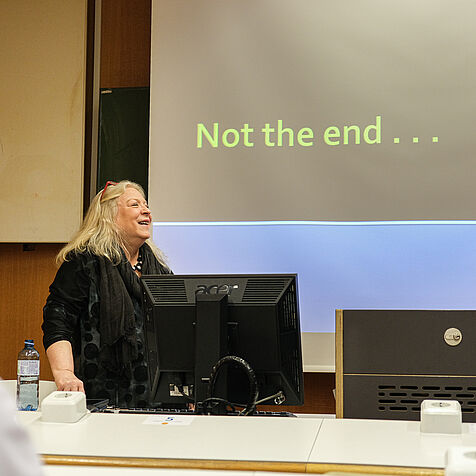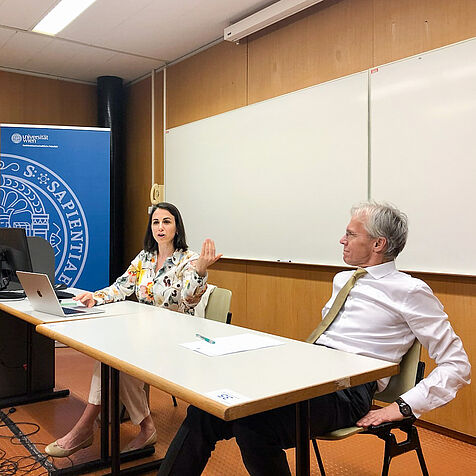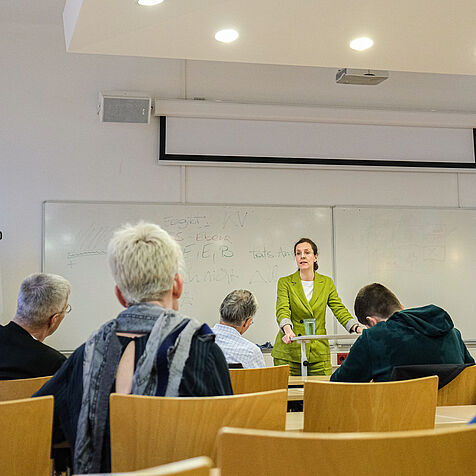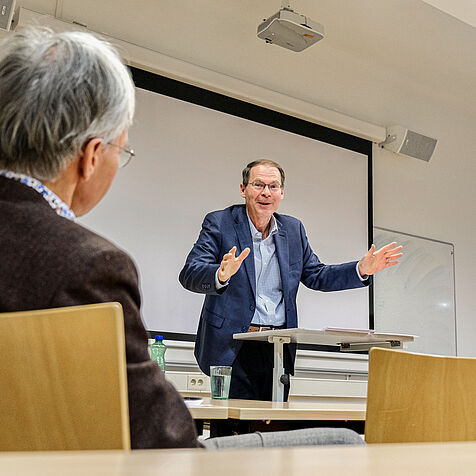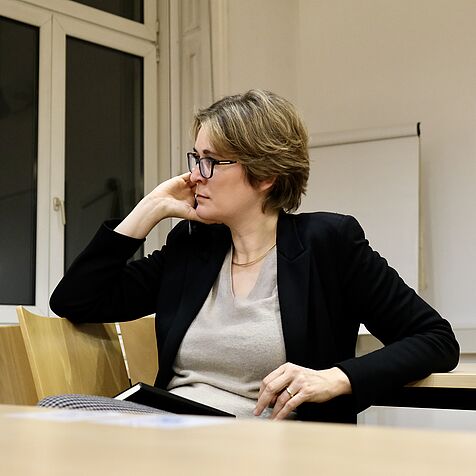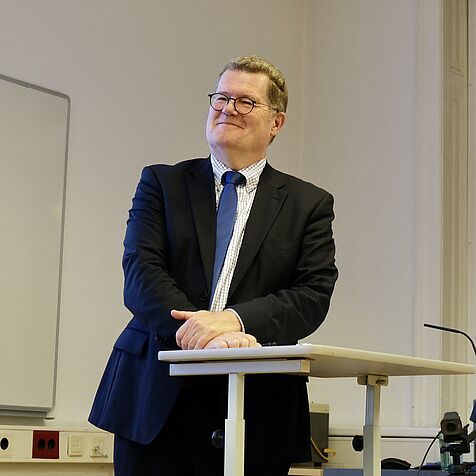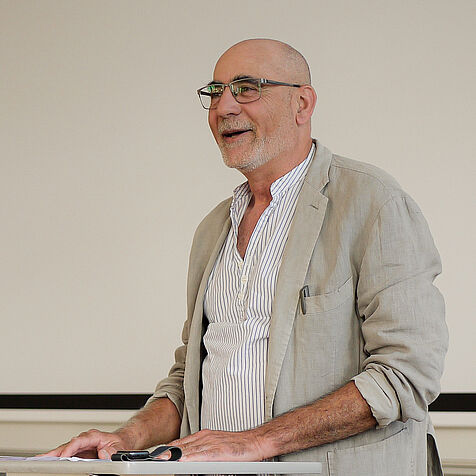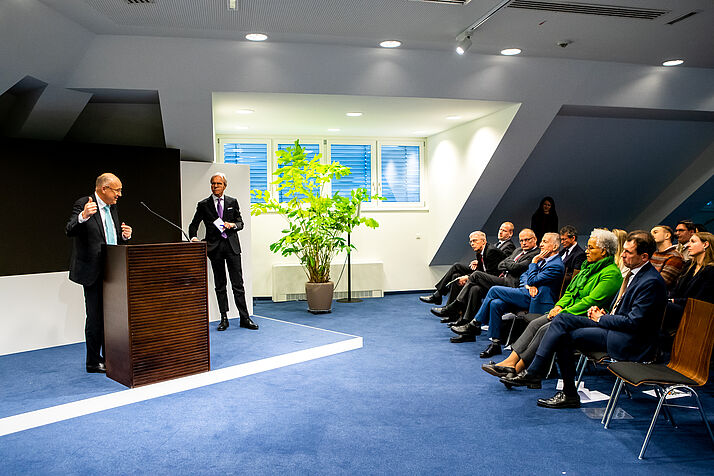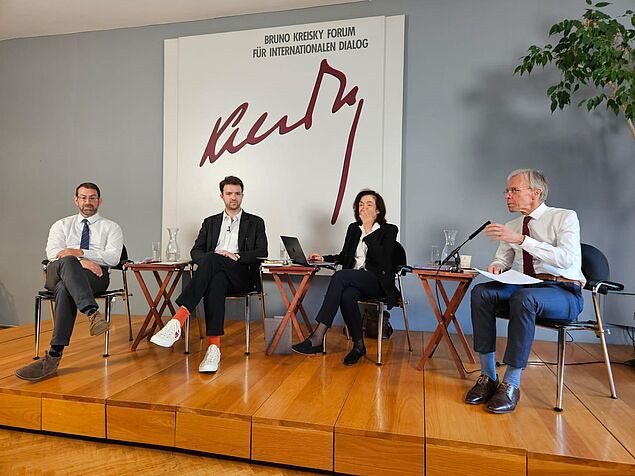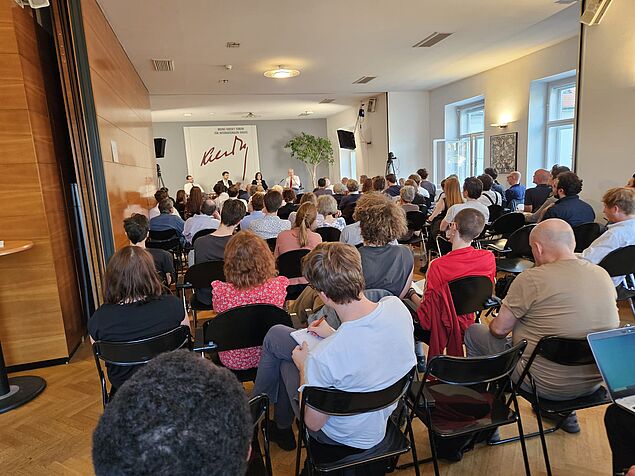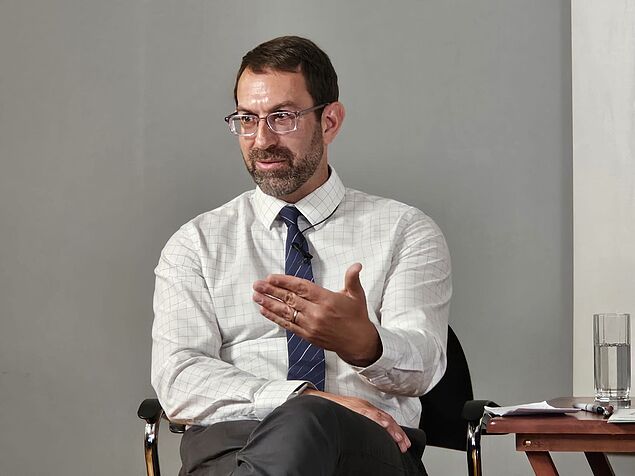Wiener Vorlesungen zur Rechtsphilosophie
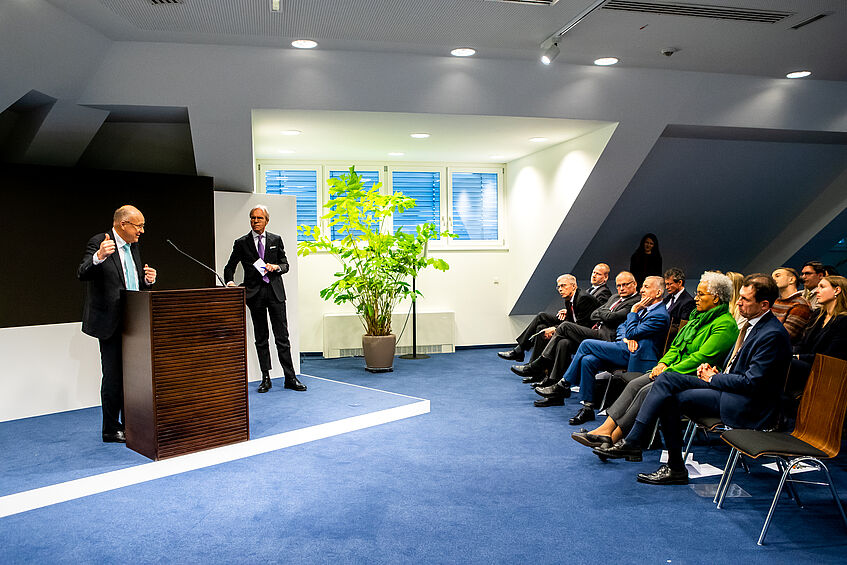
Vortrag von Koen Lenaerts, 29.01.2024
Kommende Veranstaltungen
- 11.11.2025, Klaus Günther (Goethe-Universität Frankfurt)


Vergangene Veranstaltungen
- 06.06.2025, Mike Wilkinson: "The end of the end of history, and the unfinished conjuncture of Europe"
- 08.01.2025, Prof. Dr.Dr. Dietmar von der Pfordten (Georg-August-Universität Göttingen): "Recht als Vermittlung - Was das Recht ist und was es von anderen Sozial- und Kulturgebilden unterscheidet".
- 06.11.2024, Matthias Mahlmann (Universität Zürich): "Unwiderstehlich? Gerechtigkeit, Rechte und der neue Charme antidemokratischer Ideologien".
- 29.01.2024, Vortrag von Koen Lenaerts, Präsident des Gerichtshofs der Europäischen Union, zum Thema "Judicial Dialogue and Constitutional Disagreements: Bridging the Gap".
- 30.11.2023, Cormac Mac Amhlaigh (Professor of Public Law, University of Edinburgh, Law School) "Dworkin on Disagreement".
- 15.06.2023, Adrian Vermeule (Ralph S. Tyler Professor of Constitutional Law, Harvard Law School), "Who decides? Monstrous government and the dangers of private power".
- 01.06.2023, Martin Loughlin (LSE Law School), "Enlightenment, Myth, and the Total Constitution".
- 25.05.2023, Roni Mann (Barenboim-Said Akademie Berlin), "The Dethroned Forum of Principle: Re-drawing the Power/Knowledge Matrix in Constitutional Theory".
- 11.05.2023, Kim Lane Scheppele, Laurance S. Rockefeller Professor of Sociology and International Affairs (Universität Princeton), "Restoring Democracy Through International Law".
- 27.04.2023, George Pavlakos (Universität Glasgow), "Kant’s Principle of Right as a Principle of Collective Freedom".
- 30.03.2023, Anna-Bettina Kaiser (Humboldt Universität zu Berlin), "Vom totalen Staat zur totalen Verfassung".
- 16.03.2023, William Scheuerman (Indiana University), "Hans Kelsen, Leo Strauss, and the Crisis of American Democracy".
- 16.12.2022, Sophie Loidolt (TU Darmstadt), "Tiefe Meinungsverschiedenheiten: Wirklichkeitskonstitution im Widerstreit". 18.11.2022, Michaela Hailbronner (Universität Gießen), "Constitutional Disagreements or Institutional Failure? Legal Flexibility and Rigidity in Democratic Societies".
- 20.10.2022, Stephan Kirste (Universität Salzburg), "Procedural Legitimation and Substantive Legitimacy in the current Crisis of Democracy".
- 19.05.2022, Andrei Marmor (Cornell Law School, New York), "Interpretation in Law and Elsewhere: Meaning, Object, and Truth".
- 05.05.2022, Susanna Lindroos-Hovinheimo (University of Helsinki), "How to study conceptions of personhood in law: The case of European privacy law".
- 28.04.2022, Katharina Isabel Schmidt (Max-Planck-Institut für ausländisches undinternationales Privatrecht Hamburg), "Free Legal Reasoning: A History".
- 07.04.2022, Yaniv Roznai, Ph.D.(Harry Radzyner Law School, Reichman University IDC Herzliya), "When the constitution is like a house: On metaphors in legal reasoning".
- 31. März 2022, Marie Luisa Frick (Universität Innsbruck).„Constitutional Law in the Pandemic: Contested Self-Images and Popular/Populist Appropriations”
- 20. Jänner 2022, Alon Harel (Hebrew University of Jerusalem)."On the Political Significance of Classifying Norms as Constitutional Statutory or Adjudicatory: A Political Theory of Legal Institutions".
- 19. November 2021, George Letsas (UCL University College London) "Balancing as a Legal Method: A Modern Myth".
- 14. Oktober 2021, John Tasioulas (Universität Oxford)"Can Artificial Intelligence Help Us Achieve the Rule of Law?"
- 8. Oktober 2021, Frederick Schauer (Universität Virginia) "Rules of Order" 30. September 2021, Matthias Jestaedt (Universität Freiburg i. Breisgau) "Von Eigengesetzlichkeiten und Fremdgesetzlichkeiten: Interdisziplinärer Konzepttransfer in Recht und Rechtswissenschaft" 6. Mai 2021, András Jakab (Universität Salzburg) "How to Establish the Meaning of Constitutional Principles" ABSAGE aufgrund der aktuellen Situation betreffend Coronavirus -
- 12. März 2020 Frederick Schauer (School of Law, Universität Virginia) "Rules of Order"
- 9. Jänner 2020, Anna Gamper (Universität Innsbruck) "'Geschriebene' Regeln der Verfassungsinterpretation"
- 28. November 2019, Veronica Rodriguez-Blanco (Universität Surrey, UK) "Tracing Finnis’s criticism of Hart’s Internal Point of View: Instability and the ‘Point’ of Human Action in Law"
- 19. Juni 2019, Aditi Bagchi (Fordham Universität, School of Law, New York) "On the Boundaries of Normativism"
- 9. Mai 2019, Sylvie Delacroix (Universität Birmingham) "A Social Artefact that Binds Us? Understanding Law and its Normative Force"
- 14. März 2019, Jiří Přibáň (Universität Cardiff) "Antinormativism and Legal Autopoiesis" 24. Jänner 2019, Ino Augsberg (Universität Kiel) "Die Normalität der Normativität"
- 29. November 2018, Oliver Lepsius (Institut für internationales und vergleichendes öffentliches Recht, Universität Münster) "Aggregatzustand der Normen"
- 25. Oktober 2018, Stanley Paulson (Sometime Mercator Professor, Rechtswissenschaftliche Fakultät, Universität Kiel)"Normativity and Normativism" 21. Juni 2018, Torben Spaak (Professor für Recht, Universität Stockholm)"Legal Realism and Legal Reasoning: A Quasi-Realist Approach"
- 11. April 2018, Urška Šadl (Professorin für Recht, EUI-Europäisches Hochschulinstitut Florenz) und Jakob v. H. Holtermann (Ass. Professor am Centre of Excellence for International Courts, Universität Kopenhagen) "The Relevance of the Network Approach for Legal Studies: A Letter from Europe"
- 22. März 2018, Anne van Aaken (Professorin für Law and Economics, Rechtstheorie und Völkerrecht, Universität St. Gallen) "The Concept of Law revisited: An Essay in Descriptive Psychology"
- 18. Dezember 2017, Peter Koller (Karl-Franzens-Universität Graz) "Die Bedeutung moralischer Tugenden im Feld des Rechts: Braucht das Recht tugendhafte Menschen?"
- 18. Mai 2017, Dieter Grimm (Professor für Öffentliches Recht, HU Berlin)"Die demokratischen Kosten der Konstitutionalisierung - Der Fall Europa"
- 4. Mai 2017, Martin Loughlin (Professor of Public Law, LSE London School of Economics and Political Science) "Why read Carl Schmitt?"
- 23. März 2017, Mattias Kumm (Inge Rennert Professor of Law, NYU Law School; Forschungsprofessor für Global Rule of Law, WZB Berlin) "Rechtsherrschaft, legitime Autorität und globaler Konstitutionalismus"
- 1. Dezember 2016, William Scheuerman (Professor of Political Science and International Studies, Indiana University, Bloomington) "Carl Schmitt Goes Global?"
- 14. November 2016, Christoph Kletzer (King's College, London)"Primitives Recht - Über den Keim der Rechtsordnung"
- 31. Mai 2016, Dennis M. Patterson (European University Institute, Florence)„Global Economic Constitutionalism“
- 12. Mai 2016, Otto Pfersmann (Ecole des Hautes Études en Sciences Sociales, Paris)„Dogmatik oder nicht Dogmatik, das ist hier die Frage. Zum Stand der Rechtstheorie/-Philosophie in Frankreich
- 6. April 2016, Michael S. Green (William and Mary School of Law)„Legal Monism and the Conflict of Laws“

